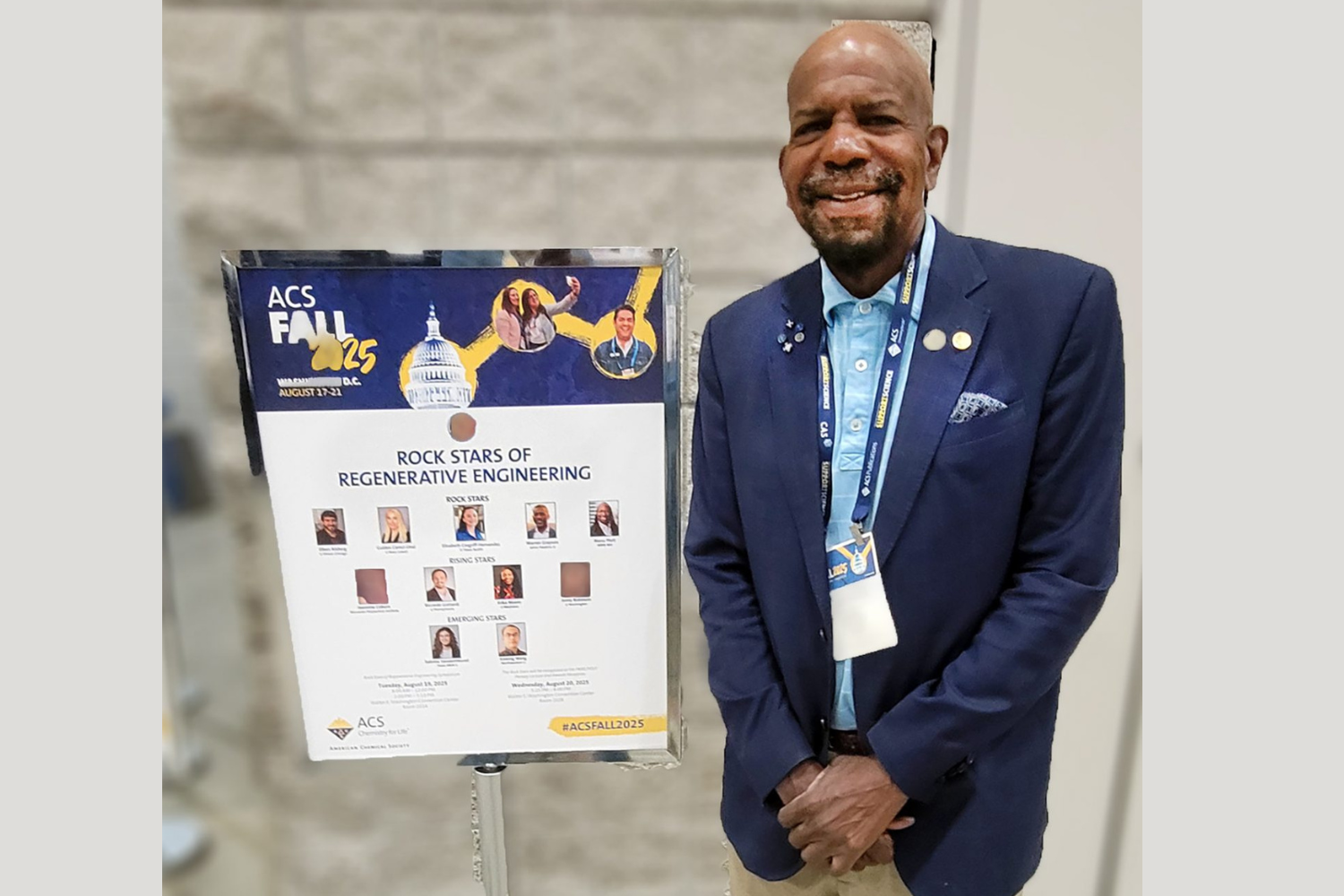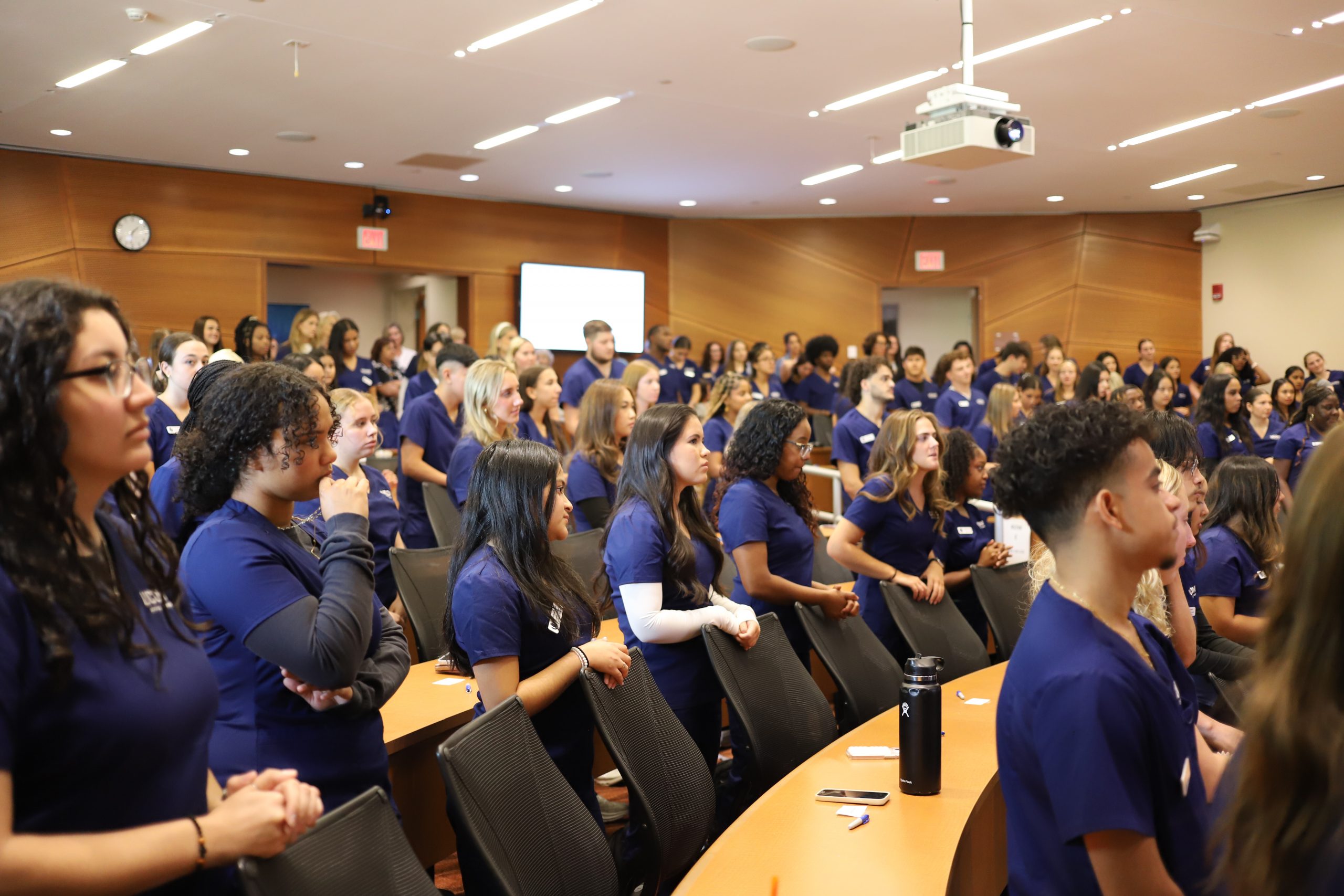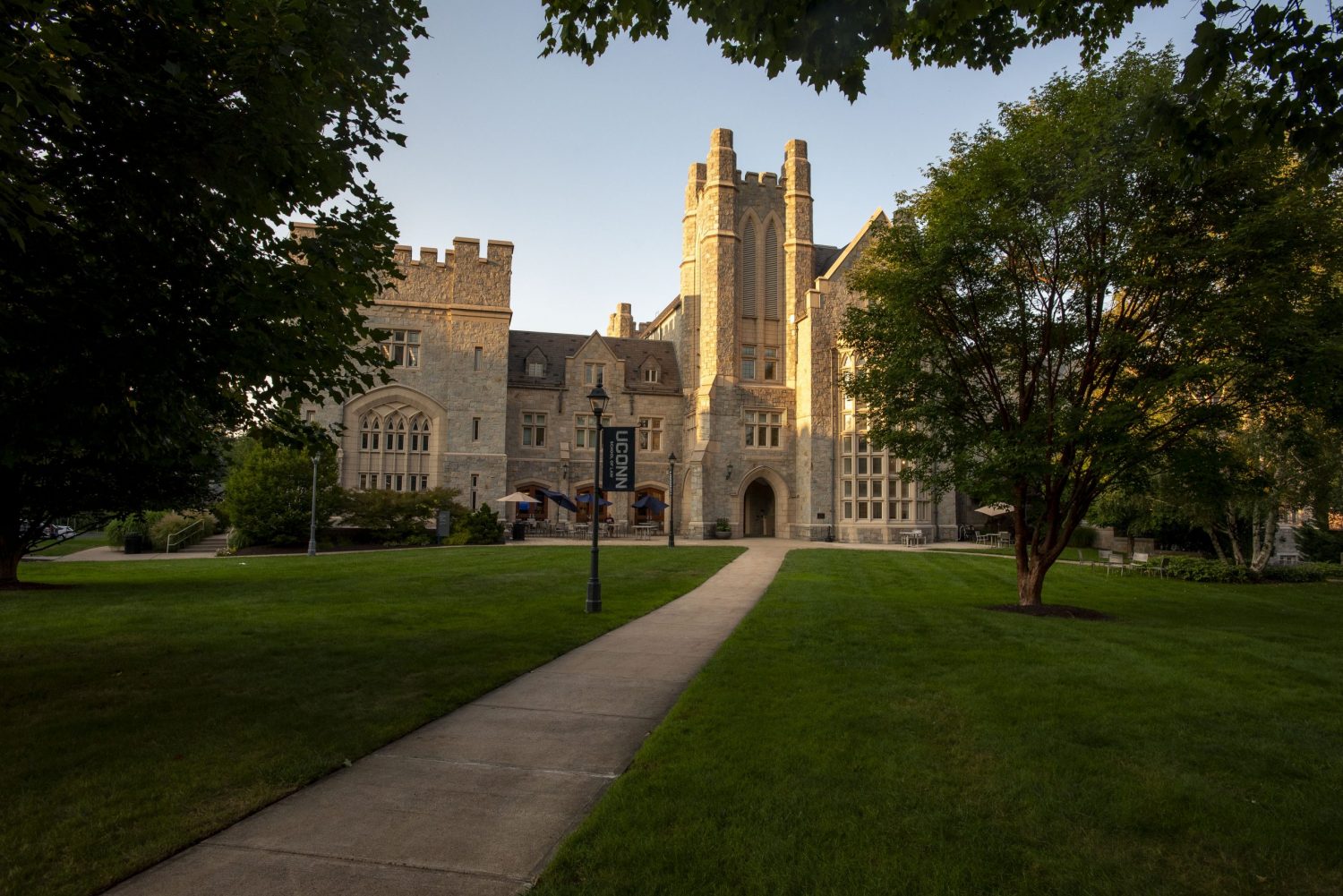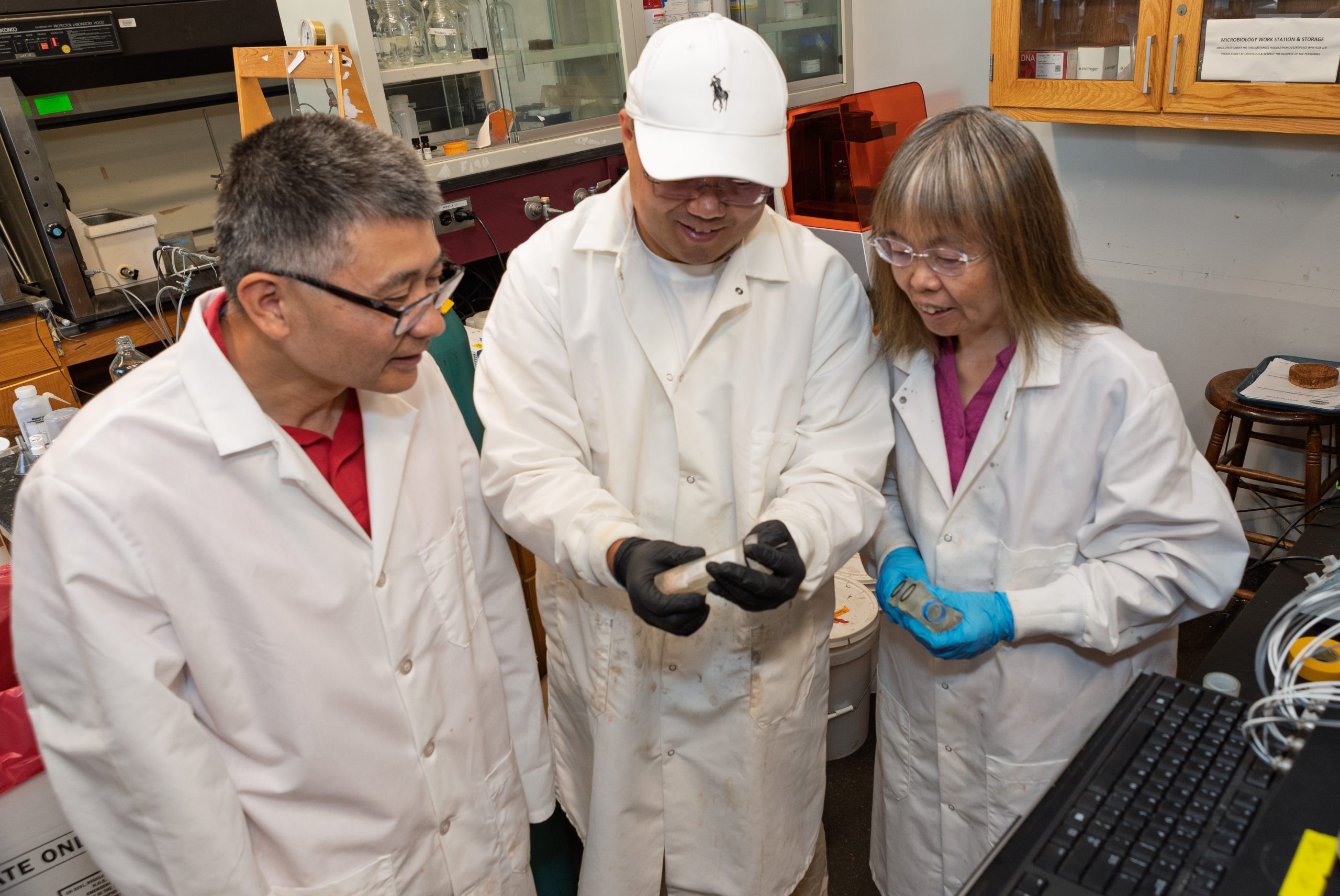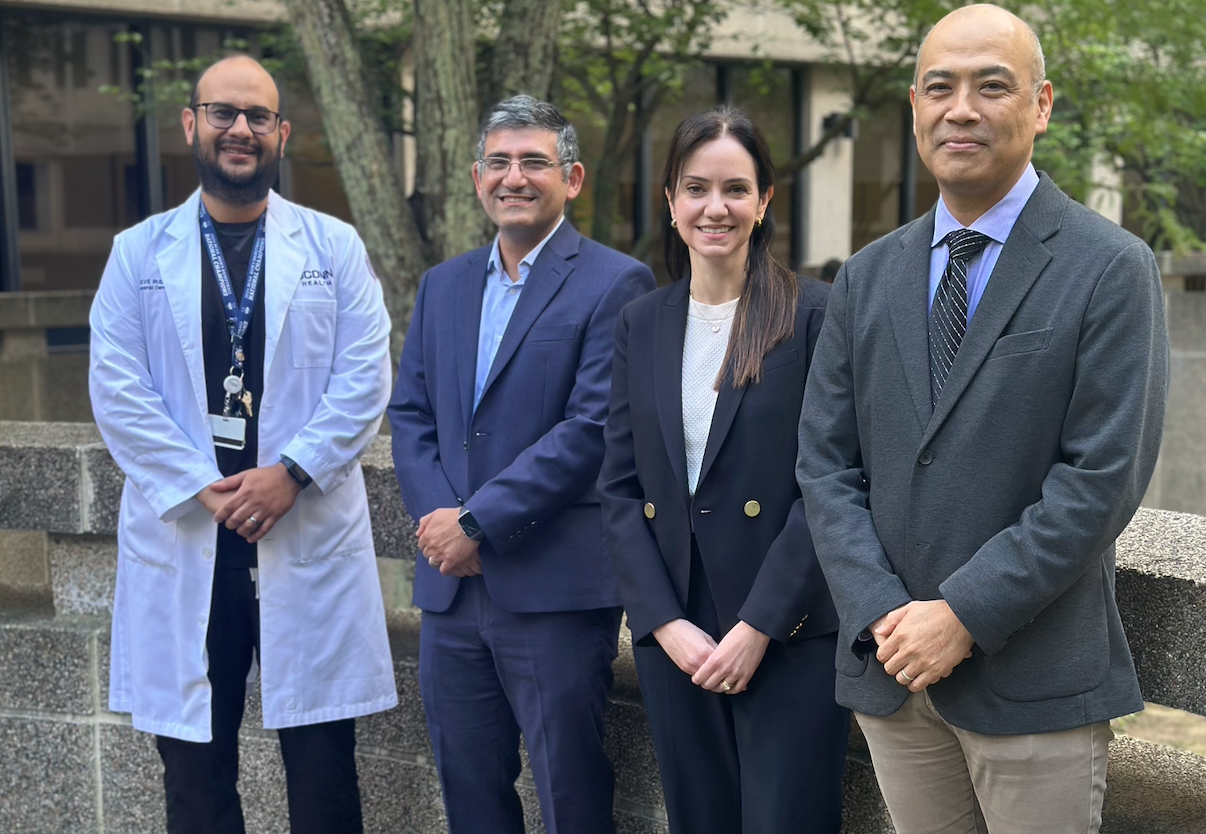UConn’s Journalism Major Offers Pathways to Legal Careers
For some UConn alumni with bachelor’s degrees in journalism, their experiences served as a launching pad to a different, but related, career path: law.
“I became a lawyer to help people — to give people advice,” says Sara Bigman ’17 (CLAS), a current litigation associate at Cohen and Wolf P.C. in Bridgeport, Connecticut. “As a journalist going into law, learning to digest information, working under pressure, and learning new topics definitely helped.”
The study and practice of journalism at UConn exposes students to civics, local government, and the justice system. Through those lessons, some journalism majors find themselves drawn to legal work.
Every semester, the Department of Journalism offers JOUR 3020: Media Law, one of the few undergraduate courses focused specifically on the law.
Students learn foundational concepts, such as the rule of law and the free speech protections of the First Amendment. They study laws regulating digital media, such as recording audio and taking photos, and exercise their rights as members of the public to access government records through Freedom of Information Act requests. They also gain exposure to tort law, including libel and privacy, and take part in a mock trial.
“In my junior year, I took Media Law with associate professor Amanda Crawford, which was my first exposure to any sort of legal education,” says Wyatt Cote ’23 (CLAS), now a third year UConn law student. “At the time, I wasn’t sure exactly why, but that class was the one that I found myself most excited by…I found myself wondering how I could capitalize on that feeling. That is when the prospect of going to law school first occurred to me.”
Crawford says that a key aspect of the course is its focus on modern challenges, such as those posed by widespread social media use and an executive branch that is openly hostile to protestors and journalists.
“I really don’t think there has been any time in my life that the issues we teach in Media Law have been more relevant to college students,” says Crawford.
Cote says in his senior year, he took professor Michael Stanton’s Investigative Reporting class, which worked on a project about Connecticut’s housing and eviction crises. The course required students to attend eviction court in New London.
“There, we were firsthand witnesses to the inequality that pervades the Connecticut housing market,” says Cote. “There, I realized that I wanted to be a housing lawyer.”
Both Cote and Bigman agree that UConn’s rigorous nationally accredited curriculum played a vital role in equipping them with career competencies for effective legal practice.
“What is less obvious is how wonderful journalism is for the students who are like me, who can’t say that they know what they want out of their careers,” explains Cote. “A journalist’s training prepares them well for legal work. The ability to connect to a stranger and tell their story in a compelling, persuasive way is an invaluable skill to lawyering,”
Cote also recommended the Department of Journalism’s news writing courses, quoting a book by Supreme Court Justices Scalia and Garner, which says lawyers “possess only one tool to convey their thoughts: language. They must acquire and hone the finest, most effective version of that tool available. They must love words and use them exactly. Cultivating an appealing prose style and broad vocabulary is a ‘lifelong project, and you may as well begin [it] at once’.”
“Students who go on to join a journal in law school will assuredly encounter pages upon pages of dull, uninspired academic writing,” Cote noted. “Taking writing classes as an undergraduate will give them a leg up on their peers and help make the pieces published by their journals actually readable.”
Transitioning to law can be a natural progression for J-majors seeking a different avenue for public service.
“I knew I wanted to do something that helped people,” says Sydney Mazur ’19 (CLAS), an attorney-at-law at Litchfield Cavo in Simsbury, Connecticut. “It definitely helps not being afraid to ask questions and to have that kind of passion or fuel within you to want to know … getting into the nitty-gritty of what’s going on, and you have to be fast enough in your mind to think of a follow-up question. So, I think journalism at UConn prepared me.”
Latest UConn Today
- Rock Stars of Regenerative Engineering Symposium at the American Chemical Society ConferenceThe symposium, coordinated by ACS’s Division of Polymeric Materials Science and Engineering, highlights the Regenerative Engineering Society, founded by UConn's Dr. Cato T. Laurencin.
- UConn School of Nursing Hosts Annual Transitions to Clinical CeremonyThird-year nursing students embark on the second half of their nursing education.
- Diane W. Whitney ’85 JD Elected to UConn Board of TrusteesWhitney is set to serve a 4-year term
- Five UConn Law Faculty Members Honored with Named ProfessorshipsThese appointments celebrate individual contributions while affirming UConn Law’s dedication to shaping the future of law and justice.
- Smart Water Sensors Help Preserve Clean Water SuppliesA College of Engineering research team is developing smart sensors for monitoring municipal wastewater, soil and other treatments with more accuracy and stability than existing sensor technology
- School of Dental Medicine Announces Faculty PromotionsFour faculty members received promotions








